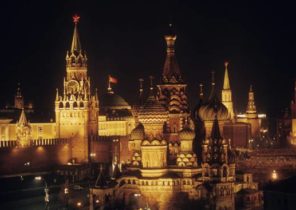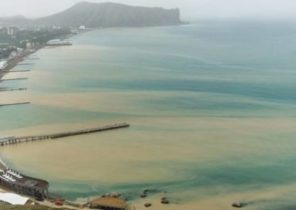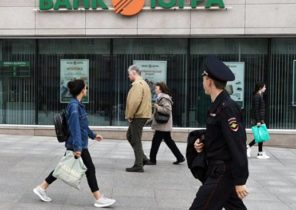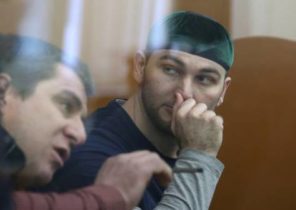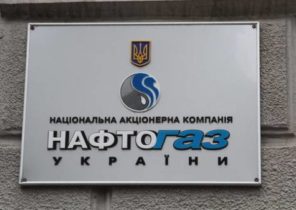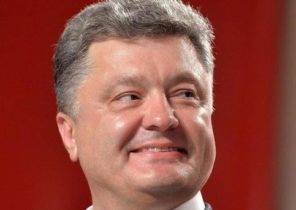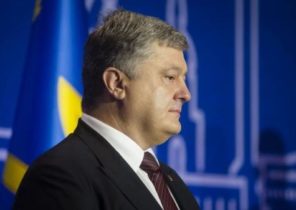This year was very unusual due to the long civil unrest and outbreaks covid-19, but there is hope that life in Hong Kong is finally returning to normal. However, while the world struggles with a terrible pandemic, Hong Kong is faced with mortal danger of a different kind.
Beijing has taken the decision on introduction in town the new law on national security, because of which there came the era of fear and uncertainty. Details of the law are not yet known, and authorities urgently trying to reassure the population. But when the law comes into force, life in Hong Kong is about to change forever.
Last week at the annual meeting of the Supreme legislative body of China all-China Assembly of people’s representatives considered the resolution. It entitles the standing Committee of the NPC to adopt a law on security for Hong Kong, and it may take place as early as next month.
The law is aimed at “prevention, disruption and punishment of any separatist and subversive activities, organization of terrorist acts and other actions which pose a serious threat to national security, as well as for foreign and external interference in the Affairs of Hong Kong,” reads the resolution that can be adopted Thursday. Will be created a mechanism of legal support of this law, and the Chinese security services will be allowed to carry out in Hong Kong its activities.
The law was presented as a measure to eliminate the violence that has rocked Hong Kong for several months from the beginning of the unrest. But there are already many laws to deal with such offenders, and on the basis of arrested thousands of people.
There is concern that the safety act can severely limit the freedoms and discussion on sensitive issues. There are suspicions that it will be used in the fight against the opposition and critics of Beijing. It may cause brain drain, to scare off business, to weaken the power of the law to deprive Hong Kong of its special qualities.
This law was a response to anti-government protests, which often clash with police and acts of vandalism. The reproach has been the flag of the country and the building of the Chinese offices of the rioters paint graffiti. Beijing is tired of it.
Supporters of the protesters appeal for help to foreign countries, primarily the United States, which passed a law with the threat of sanctions, if would undermine the autonomy of Hong Kong. All this is happening against the background of increasing Sino-American tensions over trade and coronavirus. Hong Kong defenseless against the geopolitical forces beyond your control.
The danger of the adoption of Beijing’s overarching national security law threatens the city for more than 30 years. After the bloody events in Tiananmen square in 1989, in the final version of the law which actually became the Constitution of Hong Kong, was amended.
Requirements on the adoption of laws on national security increased when, in 1997, Hong Kong returned to China. Then Beijing was furious due to the fact that the city is having mass support for the student protest movement in mainland China. The law included provisions relating to subversive activities and of the ban on political ties between local and foreign organizations.
But it also included a very important provision, which became part of caused considerable controversy in the 23rd article of the basic law. Hong Kong should enact laws on safety “on my own”. This is probably the most amazing attribute of the strong autonomy of Hong Kong. The actions of Beijing on the abolition of this provision to make the security laws have significantly changed the balance between “one country” and “two systems”.
Beijing’s patience came to an end. The laws that were to take the city, and still not accepted, although it has been 23 years.
In 2003 an attempt was made to make laws about infidelity, anti-government speeches, secession, sabotage, state secrets and links with foreign organizations. But they were shelved because of protests against them reached 500,000 people. Hong Kong’s leaders, one after another, studiously avoided any attempt to pass these laws, knowing what it will cause disagreements.
However, that Sunny day in 2003, when it held a March of protest, belongs to another time. He forced the Central government to truly take on Hong Kong. In 2004, I wrote: the city may regret not taking the laws about security in the relatively peaceful time. The proposed laws have gone through three editions, and they were made of 51 amendment. So the government responded to the concerns and demands of the population of Hong Kong. It is possible that the law would soon be adopted in Beijing will be much more stringent.
Authorities are trying to present the case as if the new law will only apply to a small minority of troublemakers that trigger riots, and will protect the rights of the majority. But this is a weak argument.
Chinese laws on national security are broad, and are used against critics of the government, including against activists, journalists and lawyers. For example, the sedition act provided for imprisonment for those who disrupt the government, “spreading rumors and slander, and acting by other means.” It can be easily used in a variety of situations where someone legitimately expressing his opinion.
That the law respected rights and freedoms, it must be clear wording and a narrow definition. To restrict the rights such a law needs only to the extent that is truly necessary to protect national security. Failure to meet these requirements in a normal situation would lead to the fact that the Hong Kong courts refused to hear cases in accordance with the violation of the law provisions.
But today judges are not to be envied. If they said that some chapters of the law unconstitutional, followed by a harsh response from Beijing. Ultimately, this question will still be addressed to the Central government in accordance with the mandatory interpretations of the basic law.
Shook the Hong Kong protests subsided during the outbreak of coronavirus. This gives authorities the opportunity to appeal to opponents of a proposal to narrow differences. But we see that the position of the government becomes tougher, and it will arrest the leading Democrats took control of the legislature and puts pressure on the official broadcasting service of “Radio and television Hong Kong” (RTHK) and the education sector, demanding more from them of political correctness.
Authorities say about the opposition as if it were a small group of “terrorists”. It seems that Beijing had forgotten that last year to March against the proposed extradition act came out of two million people, and that protesters ‘ demands for universal suffrage and accountability the police enjoy broad support. Evidence of this was the victory of the Democrats in the November elections to the district councils.
The future is uncertain. The new law is intended to stop the violence, but it will likely cause new confusion and split. We are waiting for details, but there is speculation that it will be used for plugging the mouths of the opposition and to limit the space of public discussion. With each step, Hong Kong is becoming more like mainland China. We hope for the best but fear the worst.
